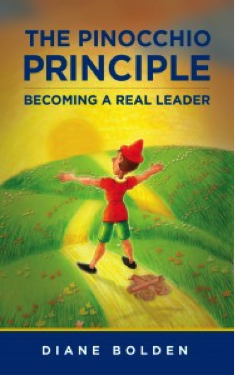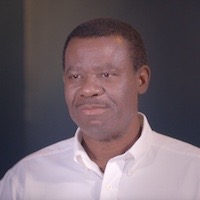Tag Archives: Challenges
Could there be order in your chaos?

Like many, I was brought up to think that things happened in a linear way – first this, then that; one building block upon another in a specific order; cause and effect.
I have since realized that the process of focusing on a larger vision or desire often triggers a chain of seemingly disjointed events that is in reality very connected.
It’s like watching a movie of a glass shattering in reverse motion. The pieces come from all directions, seemingly unrelated, to assemble into a perfect whole.
Each piece is absolutely necessary, in and of itself incomplete and incomprehensibly connected to a bigger picture.
There are ups and downs and what may feel like divergent paths from that which we may have previously anticipated. However, these seemingly divergent paths are absolutely necessary for us to experience the totality of our vision.
Sometimes a part of the healing process involves the experience of pain, or other symptoms. While we may point to these as signs that there is illness present, we could more accurately see them as evidence of our healing.
We may not realize the significance or relevance of these experiences until much later, when looking in retrospect we become aware of the distinct reason that we needed to endure any given challenge, setback, delay, or what originally felt like an irrelevant nuisance.
These obstacles give us a greater perspective on who we are, a larger appreciation for where we have been and where we are going, and a compassion for others who experience the same things we have along the way.
In dealing with these challenges, we realize that we are far greater than we thought we were. And as leaders, we can help others appreciate and leverage their own chaos as well.
Author Eckhart Tolle wrote, “Sometimes what’s in the way IS the way.”
What’s irritating you right now?
Perhaps the very experience you would rather put behind you contains the very thing you need to get where you ultimately want to go.
How can you leverage it in ways that allow you to find order in your chaos?
Dream Big ~ Trust Big

Are you dreaming big enough? If so, you may often feel overwhelmed by the seeming magnitude of what lies before you.
As we entertain dreams, visions and goals that seem so large that they become daunting, we must not be intimidated by the seeming length or difficulty of the journey ahead of us. I was reminded of this years ago on a skiing trip. After an hour or so, the years that had passed since my last skiing excursion no longer seemed significant and my adventurous side led me to a very difficult black run, full of moguls and steep angles. Once I embarked upon the run, I realized I was in way over my head. At that moment the temperature dropped suddenly and a fog rolled in that was so thick that I could not see more than three feet ahead of me. I began to panic. I wanted more than ever to reach the bottom of the slope and became more fixated on having the run behind me than on the thrill of the experience itself.
As soon as my attention and focus went from the snow in front of me to the bottom of the steep slope, I lost control and came crashing to the ground, losing my skis and feeling the slap of the hard cold ground beneath me. I managed to somehow get up and put my skis back on, but before long my focus would shift and the same thing would happen again. It was only when I resigned myself to pay attention to what was right in front of me that my body knew how to navigate each mogul. When I let go of having to know exactly how I would get down that mountain and trust that I could make it a few feet at a time, I had everything I needed to succeed.
I think that is how life is too. When we feel dismayed at not having everything figured out right off the bat, we can ask ourselves what we can do right now that will lead us closer to our goals and trust that we will be given exactly what we need to continue our journeys right when we need it. Sometimes conditions are not right for us to proceed full speed ahead, and circumstances take a turn that feel frustrating. Often the skills we need are those that can only be developed through a series of challenges that require us to move out of our comfort zones. We may see these events as setbacks and annoying diversions without realizing their perfect place in the larger orchestration of a course of events we are engaged in that has much greater implications than what we originally envisioned.
Perhaps the whispers of our heart and the calls to greatness that we feel within our souls are essential components of a larger, collective plan that we each play a vital part in. As we rise up to play these parts fully and wholeheartedly, we can revel in the beauty of its mysterious unfolding. In the process, we will discover ourselves to be greater than we thought we were and use each moment of our lives to create something extraordinary for ourselves and others.
Implications for Real Leaders
The Real Leader Revolution is bringing to a head the need for businesses to better tap the power and potential that exists within the people who are the lifeblood of their organizations. This energy, when properly catalyzed and harnessed, will create the kind of value that earns loyal customers, increased market share and strong, sustainable profitability.
To find out more about how you can unleash this talent, energy and potential in your own organization (starting with yourself), sign up below to receive your copy of The Real Leader Revolution Manifesto as soon as it is released.
Have You Leveraged the Gifts from 2017 That Will Make 2018 Extraordinary?
Well, the dust is finally settling, and the holiday decorations are (almost) packed up and put away for next year. For many, the holidays are a frenzied time – a rush to the finish line that has adrenaline spiking for days on end. Between running around trying to find the perfect gifts to sending out cards, preparing meals, entertaining family and friends and spending a lot of time around people we don’t often get to see, it can be exhausting.
Some of us were lucky enough to have a bit of down time before jumping back in to the excitement that the New Year brings. And others of us have simply been riding that wave that takes us from one activity to the next, with little time for transition. Though it is already mid-January, it is never too late to take advantage of the demarcation that the end of one year and the beginning of another brings.
The turning of each year lends itself well to waxing reflective, calling to mind both the experiences in the past that have led us to the present moment, as well as what the future might hold – what magnificent things are bubbling up within us, just waiting to take form.
It’s curious that we often associate moments of reflection with major milestones (like a New Year), rather than as a continual process in our lives. Yet it’s easy to let the frenetic pace of business, the holidays, and personal affairs prevent us from enjoying the clarity of being alone with our thoughts, and even going beyond them into the silence of our own experience.
We get swept up in a kind of auto pilot mode, where we just do what is in front of us and go from one thing to the next, without a lot of thought.
But it is in the evaluation and reflection of our experiences that we receive insight – a vital gift that can become meaningful and empowering force in our lives.
Pressing on from one thing to the next without pausing long enough to integrate what we have learned deprives us of the gifts these experiences bring. It’s like finding a few wrapped presents with your name on them that were left behind in the festivities – and absentmindedly throwing them into a box instead of opening them up to see what’s inside.
Our experiences are uniquely designed to allow us to learn – about ourselves, others, and life itself. We learn about what works, what feels good, what doesn’t, who we are, what we are capable of, what we want more of (and less of too).
But only if we pause long enough to entertain the questions that allow us to unpack these gifts that are waiting to be opened.
If you have not yet afforded yourself the indulgence of conscious and intentional reflection, I encourage you to carve out some time to do so. Because the best goals, the best visions to move toward in the coming year will be those that align with the whispers of your heart – those that tap the infinite potential and wisdom that is already inside you. And you’ll never really know what those are until you take the time to go within and ask.
Below are some questions that can help you in this process. Some of these questions might seem more powerful to you than others – let yourself go where you are drawn with them. You may even want to take a quick look at them and then put them away and see what comes to you when your mind is empty of thoughts.
Or, you may scrap these questions and come up with different ones of your own. The important thing is to allow yourself the time to go within and listen with curiosity and earnestness.
QUESTIONS FOR YEAR-END REFLECTION
- As you reflect on this past year, what were your three or four most significant accomplishments, breakthroughs, and/or achievements?
- Looking back over the year, what (if anything) blocked or held you back as you moved toward your goals/objectives? How will you overcome those obstacles in the future?
- What were your biggest insights or realizations over the past year that you gained through your experiences?
- How will you apply what you learned this past year to what you want to create in the upcoming year?
- What are the top two or three things about your job/practice that you most want to be different this year?
- What two or three changes do you most want to see in your personal life?
- What significant challenges will face you this year? Personally? Professionally?
- What strengths will you rely on most to face the challenges that lie ahead?
- What qualities, skills, etc. could you develop within yourself to better arm you for the upcoming year?
- Picture yourself a year from now, looking back over the past year. What three or four accomplishments would you like to have achieved?
- What actions are you prepared to take to achieve your desired results for the upcoming year?
I look forward to another year ahead of navigating a path of discovery – one that will lead us all closer to our most precious goals, and allow us to make the most out of every experience we have – leaving everything we touch a little better off for the interaction – our teams, our customers, our colleagues, friends, family, and of course, ourselves.
Wishing you a wonderful and prosperous New Year ahead!
3 Fears That Keep Leaders From Playing a Bigger Game
You’ve just been promoted. The excellent work you have been recognized for has landed you a new job with expanded responsibility and significance. Perhaps you lead an organization of other talented professionals who now look to you for guidance and support. Maybe you are a leader of leaders.
The game you were playing just got bigger – and so did the playing field.
And your role has changed. What earned you this promotion will not be enough to allow you to succeed in your new role. In fact, if you continue to do what you did before, you may actually sabotage your newfound success.
You have gone from player to coach — or perhaps manager/owner. And if you jump back into the game, no one will be there to call the shots, to develop the talent, to create a strategy to advance the standing of the team, to gain the supporters and funding that will allow the team to continue to play.
Yet despite these consequences, you — like many leaders faced with similar opportunities — may have difficulty with the transition. You may have fears:
- Fear than no one can do things as well (or better)
- Fear of becoming obsolete
- Fear of failure
Let’s talk about each of these, starting with the first one…
Fear that no one can do things as well (or better)
The problem with this fear is that it is actually well-founded. Chances are, especially if you are at the top of your field, very few will be able to do the job as well as or better than you can. But that doesn’t mean you should be doing it for them — or even along with them.
And yet you will be tempted to. Especially when the stakes are high. Or when things get extremely busy and it seems like targets will not be met if you don’t jump in or take over altogether. You may hover over people, micromanaging them or smothering them with well-intentioned guidance.
But your very fear that things will fall through the cracks may well cause that which you most want to avoid. Maybe not in the short term. In the short term, you may revel in your ability to keep the balls from dropping and save the day. But as more and more begins to be added to your plate, your problem of not having people who are skilled enough to take the baton will be even greater than it was before.
Worse yet, you will have conditioned the very people you need to develop to become dependent on you and quite comfortable performing at much less than their true capacity. In the meantime, the bigger, more strategic work that you have graduated to will be piling up and fairly significant opportunities will pass you by.
Your people may well be on a pretty steep learning curve at the beginning. They won’t get everything right. And they may resist taking on the responsibilities you used to perform. But you need to transition from performer to coach.
Give them opportunities to try things out. Let them make mistakes. Then help them to learn from those mistakes and perfect their craft. And do the same for yourself in your new role.
This leads us to the second common fear that keeps leaders from playing a bigger game.
Fear of becoming obsolete
It’s not necessarily a rational fear. After all, leaders who are on the brink of playing a bigger game have plenty to do. They have a whole new role to fill. But that doesn’t stop people from worrying at some level that if they teach and empower others to do what got them accolades and attention that they will somehow lose their edge and fade into obscurity.
Often when people have performed a certain role or become masterful at a particular skill, it can become infused with their very identity. And until they have performed in their new role for awhile and become accustomed to the different kinds of activities and opportunities that it brings, they are likely to continue to identify with their old role. Which may lead them to wonder, “if I’m not that anymore, who am I?”
This ambiguity and lack of role clarity can send people back to what they know is comfortable and familiar, even when they have outgrown it. And even when going back there isn’t in their best interest (or the best interest of those they lead.)
To counteract this, it is important to fully grasp the opportunities and possibilities that playing a bigger game brings. It allows you to go from being immersed in the game with a view limited from one point on the playing field to seeing the game from several different angles. You can evaluate each player’s contribution and the way they work together.
You can change the way the game is played — and in some cases, even change the rules. But only if you free yourself up from the myriad of tasks that will always be there beckoning you to come back into the operational and out of the strategic. And the lure of the old role becomes even more enticing when you factor in the next fear that keeps many leaders from playing a bigger game.
Fear of failure
When you go from executing the plays to determining what those plays should be, you enter unchartered territory. First off, it is likely something you won’t have a lot of experience doing. And when you don’t have a lot of experience doing something, it is uncomfortable.
You may not be very good at it in the beginning. It will be messy. You will second-guess yourself. And you will likely miss being able to do your work with the same level of confidence and ease that you did before.
It will feel a lot like going from being a senior to becoming a freshman again.
Second, the very nature of being a strategic player will require you to navigate through uncertainty and ambiguity. You will be called on to blaze a trail where none previously existed. While this can be incredibly exciting and invigorating, it can also be somewhat daunting and stressful.
And when the pressure gets high, you may find it incredibly tempting to get sucked back into doing things you shouldn’t be doing anymore. Things you can check off your list and feel a sense of accomplishment from. Things that restore your confidence and give you the illusion of being in control. Things that would be better delegated to others. Or not done at all.
So when that happens, you need to remind yourself that whatever you did that allowed you to rise to new heights wasn’t likely something that always came easily to you. You had to start somewhere and struggle in the beginning before you began to gain competence and confidence. But you stuck with it and gradually got better and better. And you can do that again now.
Leadership is about “going before” others. Your new promotion will require that you wade through your fear, your discomfort, your resistance and your uncertainty to find within you the core of your true potential and act from it. And as you do so, by your very example, you will lead others to grow, expand, push their limits and play a bigger game as well.
Playing a bigger game often brings pressure and anxiety. But it doesn’t have to. You can make a bigger impact without running yourself ragged – and enjoy the process along the way. The Real Leader’s Guide to Freedom & Flow Group Intensive will show you how. Though the spring program is now full, you can get on the waiting list for priority access to the fall program, kicking off in September. For more information, visit The Real Leader’s Guide to Freedom & Flow Group Intensive.
How to Develop More Confidence
Every day offers us a new challenge and an opportunity to see what we are made of.
Some days more than others. Think of all the resources you have at your disposal to rise up to these challenges. You have your intellect, style, wit, humor, strength, resilience, patience. You have friends and colleagues, family members, and other special people in your life. You have your possessions, your resources, your health, your savings, your home.
When you get down to the bottom of things, one of your most valuable resources – which allows you to enrich every other aspect of your life, is the way in which you view yourself and what you believe you are capable of. This one thing plays a monumental role in determining your fate, because it drives your actions and responses to everything that happens to you.
This quality is confidence.
You know it when you see it, don’t you? A confident person walks into a room and doesn’t have to say a thing. They wear their faith in themselves and their abilities like comfortable clothing. They do not need to be arrogant or assuming. They are at ease in their own bodies.
What exactly is confidence? And how do you get it?
Some would say confidence is being able to show others that you know what you are doing, that you have what it takes to succeed, that you are in control. Others speak of confidence from the standpoint of having courage to do things that require a high degree of skill, knowledge, strength, coordination, or that may entail some degree of risk. Still others would say confidence is the ability to inspire trust in others. Merriam Webster defines confidence as “a feeling or consciousness of one’s powers or of reliance on one’s circumstances” and “faith or belief that one will act in a right, proper or effective way.”
Confidence is something that must come from the inside out.
What do I mean by that? Every day we face challenges and opportunities that allow us to exercise confidence. We can do things today that we were unable to do last year, or maybe even last week. When we get to a point where we no longer question our abilities and simply execute the task at hand in a manner that is fitting to the situation, one could say we are acting with confidence.
Exercising confidence does not require that anyone else believe we know what we are doing, or even that they witness us doing anything at all. It requires us to do what must be done at any given time, utilizing the resources at our disposal and calling on our own strengths, ingenuity, and discernment to do it.
It is easy, however, to fall into the trap of trying to gain confidence from the outside in.
We often go about our tasks with an eye on the perceptions of others and allow their reactions to determine our confidence level. A positive response increases our confidence, and a negative one decreases it. When we repeatedly engage in behavior like this, we will subjugate our ability to perform and stunt our inherent talent by interrupting its natural flow.

Imagine yourself standing in a room trying to balance on one foot while holding the other in your hand and looking up at the ceiling. Now add about fifteen to twenty people to the room who are trying to do the same thing. If you worry about whether you look good and imagine that everyone is staring at you, you will lose your balance (and your confidence). If, however, you center yourself and focus on the task at hand, you will find your core strength and a sense of calm, and you will achieve your goal. It may take awhile, but you will get there.
“It is very easy in the world to live by the opinion of the world. It is very easy in solitude to be self-centered. But the finished man is he who in the midst of the crowd keeps with perfect sweetness the independence of solitude.”
~ Ralph Waldo Emerson
This phenomenon becomes more complex when we assign value to others’ perceptions.
The opinion of someone we highly regard may weigh more heavily than someone we don’t. And strangely, getting validation from someone who doesn’t seem to think well of us can have more significance than hearing praise from people who are our biggest fans. Why? I think we tend to focus our attention on that which mirrors our own thinking. Criticism stings the most when it amplifies our own self doubt. And when we find ourselves craving acknowledgement from others, it is likely because we are withholding it from ourselves.
As we go about trying to win approval, we allow others to define our sense of self.
And as a result, we grow ever more unaware of the treasure that sits in our own back yards. We leave our true fortunes to seek things that glitter and fade. The harder we try to win the confidence and validation of others, the further we will get from achieving it and the more deeply buried our inherent riches become.
Rather than acknowledging evidence that is all around us which confirms that we are competent, creative, talented, worthy and capable of achieving great things, we waste our energy focusing on what we believe is lacking. As a result, we pay attention to data that validates our feelings of inadequacy, which leads us to act in ways that sub optimize our potential. This further erodes our confidence and we risk locking ourselves in vicious cycles of deteriorating performance and eroding self assurance.
Confidence is an inside job because we cannot expect others to believe in us if we do not believe in ourselves.
To be truly free, we must become independent of the opinion of others.
This does not mean we stop seeking feedback or valuing input and suggestions. It simply requires that we learn to become unattached to others’ approval and instead draw upon our own inner reserves. When we stop seeking validation, we find our centers again and learn from our own experiences and inner wisdom.
Practice and simple adjustments allow us to find our zone, listen to our intuition and slowly perfect our game. Becoming quietly confident, we lose the need to prove that we are right, defend our honor or value, and impress others. We simply do what is ours to do in any given moment and judge our success on the merits of the work itself.
When we truly go within to discover and unearth our own value, a funny thing happens.
Over time, we will come to be surrounded by people who mirror our own positive assessment of ourselves. Criticism may still come, but it will no longer have the sting it once did. Void of the emotional charge, we can take feedback for what it is – data that helps us to see something we may have missed, so that we can make a course correction if necessary.
No longer basing our value of ourselves on what others think of us, we can refocus the energy we spent seeking validation into helping others recognize their own value. In modeling this behavior, our increased confidence in ourselves engenders confidence both in and from others, and we can truly lead.
When we have confidence in ourselves, we regain a sense of power and faith.
No matter what happens in the uncertain world around us, we know we have what it takes to rise above our challenges and turn them into opportunities. We act in ways that show others they too have the ability to shape the world around them by starting with themselves.
“As soon as you trust yourself, you will know how to live.”
~ Johann Wolfgang von Goethe
This article contains excerpts from my book The Pinocchio Principle: Becoming a Real Leader now available in both ebook and paperback formats on Amazon.
Yoga image courtesy of arztsamui / FreeDigitalPhotos.net.
Why I Can’t Promote My New Book Just Yet
A NOTE FROM DIANE:
I almost didn’t post the above video. It’s personal. And it was recorded in a fragile moment. But then I remembered how comforted I have felt by messages from people who were courageous enough to talk about the challenges and frustrations they were working through. And I decided, the hell with it. I’m going to put the video up. If it lifts the hearts of just one or two people, it’ll be worth it.
If you’ve ever been in a spot where, despite having access to an overwhelming amount of information and people that seem to have it all figured out, you just can’t seem to find any answers — know that you are not alone. And please also know, that you too will find your way.
Here is the written version of what I said in the video:
 People have been asking me, What have you done to promote your book? Do you have a publicist? Are you going on tour?
People have been asking me, What have you done to promote your book? Do you have a publicist? Are you going on tour?
I wrote this book — The Pinocchio Principle: Becoming the Leader You Were Born to Be. It took me six years to write it. It’s been out for three months. And I can’t get myself to promote it. I can’t get myself to do anything with it. And I know that I should.
So the other day, I was watching a webcast from someone talking about how to become a best seller — how to become a trusted advisor. And I began to fill my head with all these things I thought I should be doing. I found myself taking copious notes. And I got to this point where I couldn’t watch it anymore. I had to turn it off. Something got into me and I literally had to go cry. And I cried so hard I almost threw up.
After all that passed, I realized that the reason that I can’t promote my book yet is that I’m looking so hard outside of myself for people to tell me what to do in an arena where I don’t feel like I have the answers. And the irony is that the book I wrote is about how to trust your inner wisdom and how to navigate through your challenges and your uncertainty.
And so when I got done crying I had to start laughing. Because it’s kind of funny that I actually already have the workbook I need. It’s right here [in the book I’ve poured my heart into for the last six years].
The truth of the matter is that this book isn’t really as much for you as it is for me. And before I can really promote it — before I can feel as though it will be of value to people, I need to live it. And that’s what I’m going to do.
For more on finding your way:



